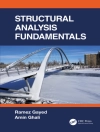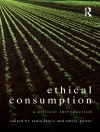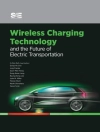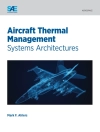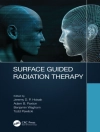This book presents the conference proceedings of the F-EIR Conference 2021, Environment Concerns and its Remediation held in Chandigarh, India, October 18–22, 2021. The purpose of the conference and the volume is to present new ideas across a range of disciplines in environmental science, with a focus on theoretical and practical approaches to clean production aimed at preventing the production of waste, while increasing efficiencies in the uses of energy, water, and renewable resources. With contributions from leading experts equipped with state-of-the-art information and technology, the book covers topics of sustainability and resilience, chemical and environmental engineering, materials science, biotechnology, health-related microorganisms, and green technologies. The book will be of interest to scientists, engineering professionals, architects, environmental scientists, academicians, economists, and students engaged in these disciplines.
Innehållsförteckning
Chapter1. UHMWPE/OPA Composite Coatings on Ti6Al4V Alloy as Protective Barriers
in a Biological-like Medium.- Chapter2. Multi-functional Behaviour of Ti O2 Cementitious Compo-sites for Photocatalyst Air Cleaning and Energy Saving.- Chapter3. Co-utilization of slag by-products from steel industries in sustainable concrete.- Chapter4. Green concrete with clinker-free cement and blast furnace slag aggregate and its application to concrete-filled-bamboo (CFB).- Chapter5. MPCM-based porous cementitious composites for enhanced energy efficiency of smart buildings.- Chapter6. Usage of Ground Granulated Blast Furnace Slag on Mechanical and Absorption Properties of Concrete.- Chapter7. Study on Self-Compacting Concrete using Marble Powder with Silpozz.- Chapter8. Contribution of waste paper sludge on the mechanical and durability attributes of concrete- A review.- Chapter9. Investigating the Effect of Corn Cob Ash on the Characteristics of Cement Paste and Concrete- A Review.- Chapter10. Influence of copper slag on the mechanical properties of concrete- A Review.- Chapter11. Experimental Study on Fly ash and GGBS Based Geopolymer Corbels.- Chapter12. Environmental Remediation for Cementitious Systems using Titania Nanocomposites.- Chapter13. Restoring urban green cover of Chennai city – an ecological approach.- Chapter14. Cities and their role in promoting Sustainability.- Chapter15. Landslide Susceptibility Analysis of Mandi District, India Using Hybrid Machine Learning Methods.- Chapter16. Planning strategies to improve deteriorating living environment of hill towns: A case of Dharamshala.- Chapter17. Volatile organic compounds: the concealed depreciator of indoor air quality.- Chapter18. High levels of nitrate in well waters of Saipem ward, Candolim, Goa.- Chapter19. Fuel Cell Technology – The Future Ahead.
Om författaren
Dr. Deepankar Kumar Ashish is an Associate Professor in the Department of Civil Engineering at Maharaja Agrasen University, Baddi, India. He has a special interest towards the development of sustainable concrete, increasing the utilization of industrial by-products in the development of concrete. He is the author or co-author of nearly 50 articles. Deepankar is the recipient of several academic awards including the Best paper award and an active member of ACS, RSC, ACI, ASCE, & RILEM.
Professor Jorge de Brito is Professor in the Department of Civil Engineering, Architecture and Georesources at Instituto Superior Técnico, Technical University of Lisbon, Portugal. He has 20 years’ experience in sustainable cementitious materials. His work includes coordinating six national and one international research project. He has published over 600 papers in leading journals, 600 conference papers, and 40 book chapters. He holds three patents, and has also written ten books.


